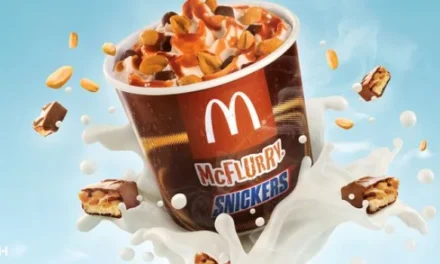As a passionate gelato enthusiast, I am thrilled to share the exciting news about the upcoming exploration of halal and vegan options in the world of gelato. Join me on this delectable journey as we uncover the innovative and mouthwatering creations that will cater to diverse dietary preferences, promising a delightful experience for all gelato lovers.
Examining the Ingredients and Production of This Tantalizing Frozen Dessert
Gelato is a popular frozen dessert that originated in Italy. It is similar to ice cream but has some key differences.
- Gelato is made with more milk than cream, giving it a lower fat content than ice cream. It also has less air whipped into it, creating a denser texture.
- Flavors tend to be more intense in gelato since it has less fat to coat the tongue. Fruit and nut flavors are very common.
- Gelato is typically served at a slightly warmer temperature than ice cream. This enhances the flavors and creamy mouthfeel.
Gelato is churned at a much slower rate, incorporating less air which allows the flavors to remain rich and intense.
Gelato has seen growing popularity around the world, expanding outside of Italy to places like the United States. It offers a nice alternative to ice cream with bolder, fresher flavors.
However, there are questions around whether gelato can be considered halal. Halal refers to Islamic dietary guidelines on what foods and products are permissible to eat. The ingredients and production process must meet certain requirements.
Muslims around the world are interested in knowing whether factory made ice cream and gelato are halal and permissible for them.
This article will analyze the typical ingredients, manufacturing, and opinions around gelato to determine if it can be halal. Key considerations include:
- Type of milk and cream used
- Potential animal-based ingredients
- Use of alcohol extracts
- Steps for halal certification
Background on Halal Food Requirements
For a food or product to be considered halal, it must comply with Islamic dietary laws. Some key requirements include:
-
Avoiding pork and pork by-products – Pork is strictly prohibited according to Islamic teachings. As this source explains:
Muslims are prohibited from consuming pork and pork products as well as meat from dead animals.
-
Avoiding alcohol – Any food or drink containing alcohol is haram (impermissible). As stated by this reference:
Intoxicants – such as alcoholic beverages – or any food containing alcohol – such as vanilla extract – is considered haram.
-
Proper slaughtering techniques – For meat to be halal, the animal must be slaughtered according to zabihah guidelines which are intended to minimize suffering. As explained here:
For meat to be halal, the animal must be killed “with a cut through the neck while invoking the name of Allah to take the animal’s life”.
-
Avoiding questionable ingredients – Meat and other ingredients from improperly slaughtered animals would be prohibited. There are also debates around ingredients like gelatin.
To ensure compliance, halal certification and labeling is important. As this reference emphasizes:
Halal certification tells Muslim consumers that the ingredients and production methods meet the requirements for a halal diet.
Gelato Ice cream Ingredients and Production
The primary ingredients in gelato are:
- Milk
- Cream
- Sugar
- Egg yolks
- Flavorings
As explained by this source:
Gelato is made mainly from milk, cream, sugar and egg yolks.
There are some potential animal-derived ingredients that may be used:
- Gelatin – Derived from collagen in animal bones and tissues. Would not be halal.
- Whey – A byproduct of cheesemaking using rennet from calf stomachs. Acceptability varies.
Flavors also must be considered:
- Fruit purees – Typically halal
- Chocolate – Requires halal certification for milk and lecithin
- Alcohol extracts – Use of rum, liqueurs would make it non-halal
Additionally, the equipment used and manufacturing process play a role:
- Shared equipment – Must be thoroughly cleaned if used for haram foods
- Hygiene – Must follow halal standards
The cleanliness of the ingredients and the equipment involved also has to comply with halal standards.
So while the basics of gelato seem halal, the details matter greatly.
Perspectives on Gelato’s Halal Status
There are differing opinions on whether commercially produced gelato can meet halal standards:
Arguments that gelato is generally halal:
- Primary ingredients like milk, cream, eggs are halal
- No pork products are used
- Fruit and nut flavors avoid haram ingredients
Gelato ingredients are dairy and plant-based, conforming to halal diet.
Cases where gelato may not be halal:
- Alcohol-based extracts used for flavoring
- Improperly slaughtered meat byproducts like gelatin
- Cross-contamination from equipment
Gelato must also be free from contamination with haram foods or ingredients.
Role of halal certification:
- Provides assurance that all ingredients, processing and sanitation meet halal standards
- Gives Muslim consumers confidence in the product’s compliance
Halal certification of the product is the best way to verify it meets the dietary requirements of Muslims.
So perspectives vary on inherent halal status, highlighting the need for careful selection or certification.
Options for Halal Gelato
For Muslim consumers who want to enjoy gelato that adheres to halal guidelines, there are a few options:
Seek out certified halal gelato producers
- Look for halal signage and labeling
- Check for halal certifications from organizations like IFANCA or MUI
As this source advises:
Muslim consumers should look for credible Halal certification body labels on the product packaging to be assured of the halal status.
Choose vegetable-based and alcohol-free flavors
- Ask gelato shops to confirm ingredients
- Avoid flavors like rum raisin, tiramisu, zabaglione
As noted here:
Muslim consumers should inquire about the source of flavours and colouring agents to ensure they are not derived from alcohol or animals.
Make gelato at home with halal ingredients
- Use plant-based substitutes like carrageenan instead of gelatin
- Exclude alcohol-based extracts from recipe
- Ensure equipment is thoroughly cleaned
This allows full control over the ingredients and process.
Muslims who want to enjoy halal gelato can prepare it at home, being mindful of the ingredients used.
Is Gelato Halal – FAQ
What does it mean for gelato to be halal?
Gelato being “halal” refers to whether it is permissible or allowed according to Islamic dietary laws.
Does gelato contain cream?
Yes, gelato does contain cream as it is an essential ingredient in its production.
How can I determine if a gelato is halal or not?
The halal status of gelato can be determined by checking if it has a halal certification from a reputable authority. Look for gelato shops that display their halal certification prominently.
Is gelatin used in gelato?
No, gelatin is usually not used in traditional gelato recipes. Gelato is typically made using fresh ingredients without the addition of gelatin.
What does “haram” mean in relation to gelato?
“Haram” refers to something that is prohibited or not allowed according to Islamic dietary laws. If a gelato product contains non-halal ingredients or is not produced in accordance with halal standards, it would be considered “haram.”
Are all gelato flavors considered halal?
Not all gelato flavors are automatically considered halal. It depends on the ingredients used and the production process followed. Some flavors may contain non-halal ingredients, so it’s important to check the specific ingredients used in each flavor.
Can gelato made with flavorings be considered halal?
As long as the flavorings used in the gelato are halal-certified and do not contain any non-halal ingredients, gelato made with flavorings can be considered halal.
Is gelato permissible for those following a halal diet?
Yes, gelato can be enjoyed by individuals who follow a halal diet as long as it is made using halal ingredients and follows halal production processes.
Are dairy products used in gelato halal?
If the dairy products used in gelato production are obtained from halal-certified sources and do not contain any non-halal additives, they can be considered halal.
Does gelato production process comply with Islamic dietary laws?
The compliance of gelato production processes with Islamic dietary laws may vary. However, gelato can be made in a way that follows a halal production process, ensuring that all
Conclusion
In summary, the halal status of gelato depends on several factors:
- Primary ingredients like milk and cream are generally halal
- Animal-derived ingredients may be prohibited
- Flavorings can contain alcohol extracts
- Proper halal certification provides assurance
The ingredients and processing of gelato must comply with Islamic dietary laws to be considered halal.
There are still some ambiguities around gelato’s halal status:
- Debates around certain ingredients like whey
- Variations in production methods
Ultimately, it comes down to individual discretion based on preferences:
- Some may avoid gelato altogether
- Others may only eat certified halal varieties
- Homemade gelato allows customization
Muslims should use their own judgement when choosing whether to consume store-bought gelato.
In the end, careful selection of ingredients and halal certification can allow enjoying this popular Italian dessert.





